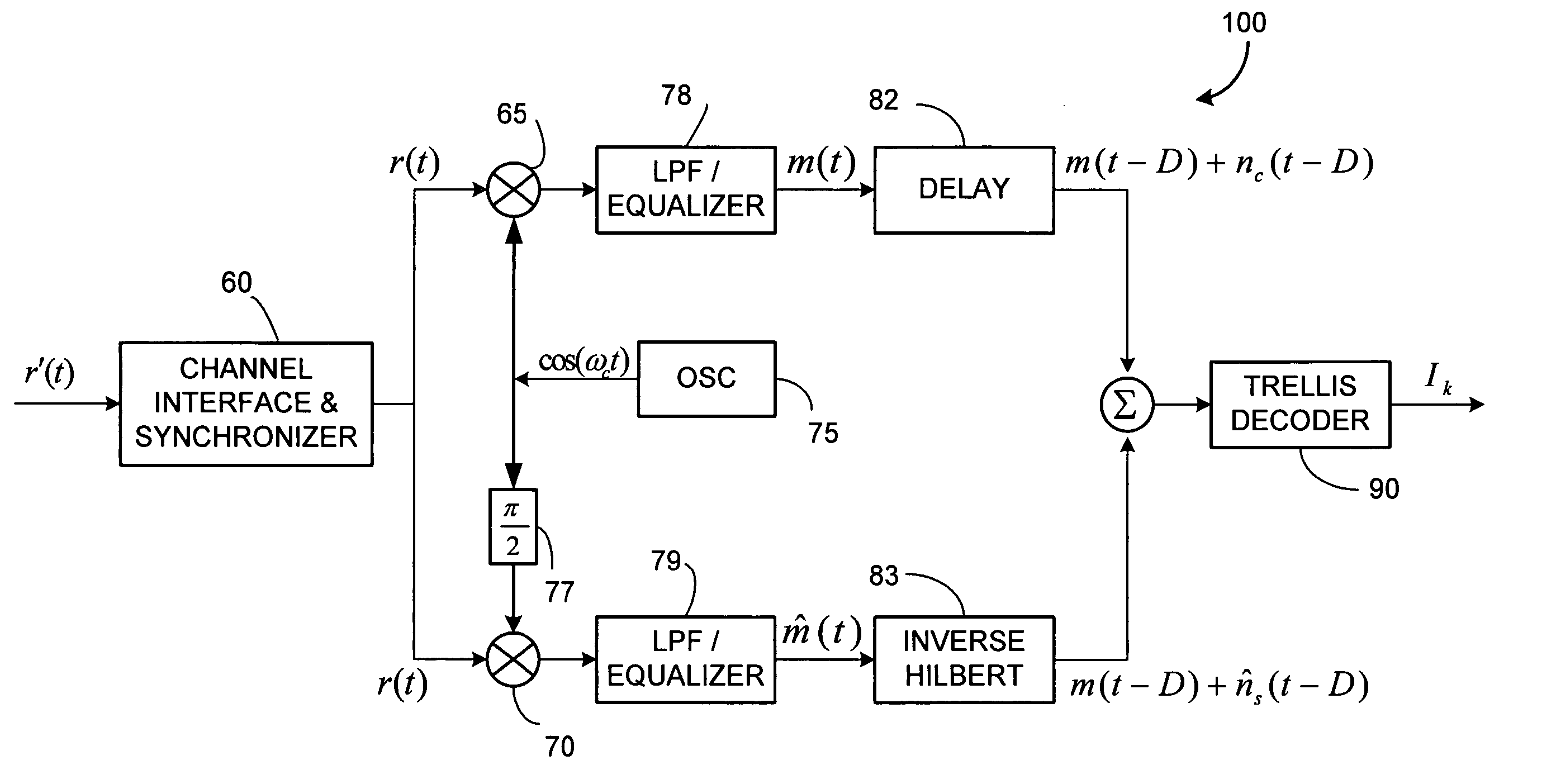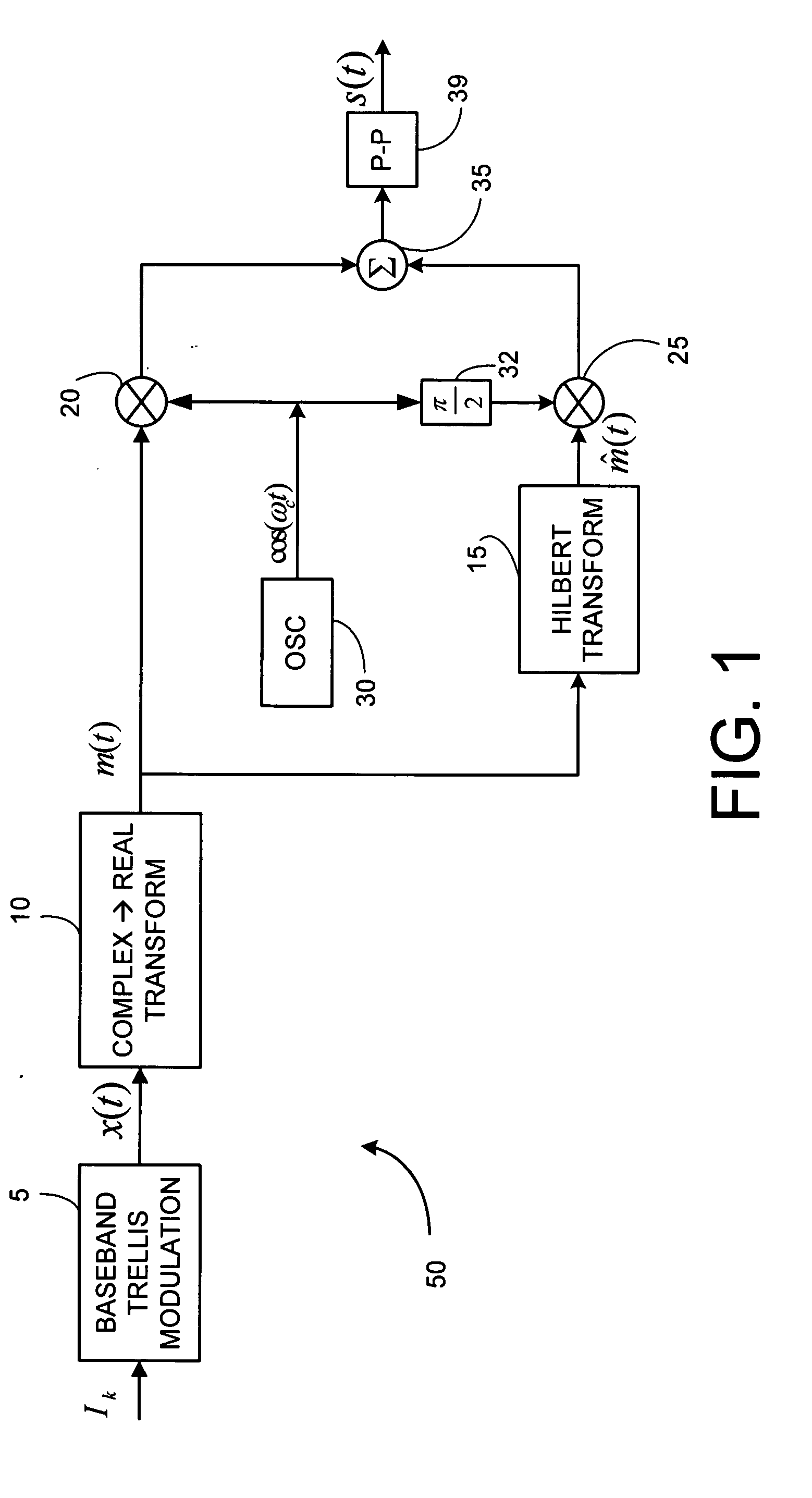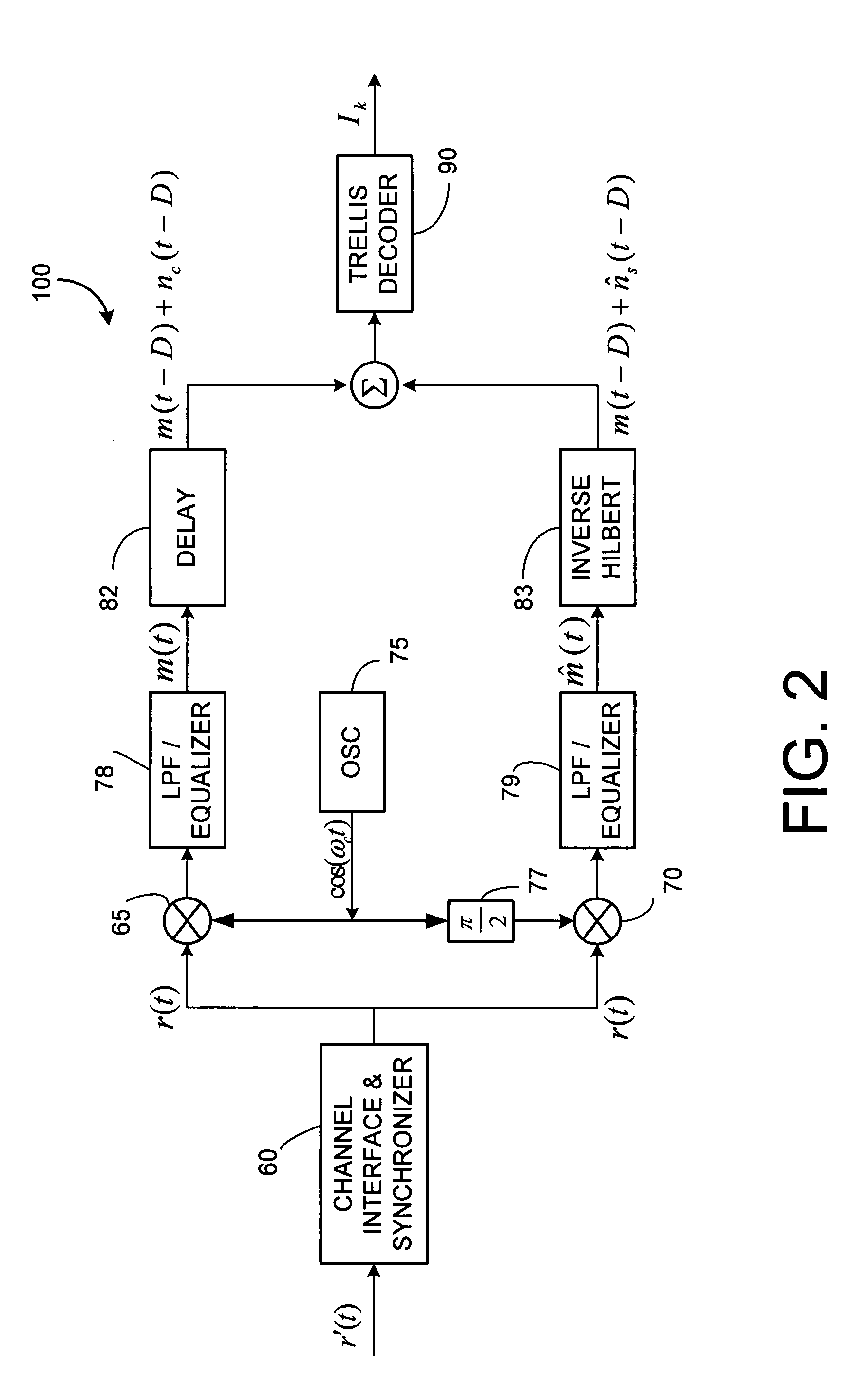Single sideband and quadrature multiplexed continuous phase modulation
a phase modulation and single sideband technology, applied in the field of single sideband frequency modulation (ssbfm) algorithms, can solve the problems of complex baseband signal, mathematical difficulties, and ssb-am techniques that are not typically applied to signaling
- Summary
- Abstract
- Description
- Claims
- Application Information
AI Technical Summary
Benefits of technology
Problems solved by technology
Method used
Image
Examples
exemplary embodiment i
4-ary SSB-MSK and 16-ary MQM-MSK Comparable with QPSK and 16-QAM
[0150] In this exemplary embodiment define two message signal mI(t) and mQ(t) as
mI(t)=A cos[α1(t)]+Ar cos[α2(t)]; mQ(t)=A cos[α3(t)]+Ar cos[α4(t)] (44)
where, r is an amplitude scaling factor. The signals mI(t) and mQ(t) are respectively applied to mixers 630 and 640 in FIG. 6 to generate the QM-CPM signal s(t) in FIG. 6. The transmitter structure of FIG. 6 thereby generates on each of its in-phase and quadrature phase channels a 4-ary scheme with average transmitted power A2(1+r2) / 2 and an average symbol energy given by: Eavg.=A2Ts(1+r2)2.(45)
The signal on the in-phase channel, mI(t) is the real part of a 4-ary CPM signal given by
x(t)=ejα1(t)+rejα2(t). (46)
In this exemplary embodiment, we set r=½ and use MSK signals (h1=h2=0.5) whose phase functions are: α1(t)=2π h1∑kIk∫-∞tg(ξ-kT)ⅆξ+β1(47)α2(t)=2π h2∑kJk∫-∞tg(ξ-kT)ⅆξ+β2(48)
where g(t)=[u(t)−u(t−T)] is a rectangular pulse between 0 and T...
exemplary embodiment ii
QM-CPM Comparable with Offset QPSK and 16-QAM
[0156] In this example, we study a 16-ary approach where we use a time delay between component signals to form: mI(t)=m1(t)+m3(t-T2),mQ(t)=m2(t)+m4(t-T2).(54)
We apply the mI(t) and mQ(t) signals above in FIG. 6 to the mixers 630, 640 to produce the transmitted signal:
s(t)=A[mI(t)cos(ωct)−mQ(t−τ)sin(ωct)]. (55)
In this example, we selected the τ's to minimize the PAPR. Observing that mI2(t)= mQ2(t)=1, the average transmitted power s2(t)=A2. Compared with equations (23)-(24), the transmitted power in the signal of equations (54)-(55) has doubled due to the addition of two new bit-carrying component signals. This approach also provides a 16-ary signaling scheme with similar performance properties as in the previous example.
[0157] The concepts of exemplary embodiments I and II can be combined as shown in FIG. 11 and FIG. 12. FIG. 11 shows the real-valued trellis structure of mI(t) constructed with MSK signals with β1=β2=π / 4 using...
exemplary embodiment iii
Use of a Frequency Shift Parameter to Improve Dmin2
[0174] In this example we apply a frequency shift to improve upon the normalized Dmin2 value obtained from the resulting trellis structure. We start with a frequency-shifted CPM baseband signal
x(t)=ej[α(t)+ωd1] (61)
where ωd represents the frequency shift. Next we apply equation (15) to obtain:
m(t)=cos[α(t)+ωdt]=cos γ(t). (62)
We can use this shift to modify the trellis structure of m(t) so as to improve upon a corresponding value of the normalized Dmin2. We can select ωd so that γ(t) does not decrease for any symbol. For example, for α(t) corresponding to binary CPFSK with h=¼, we can select ωd=π / 4T, so that during the kth interval, γ(t) can be written γ(t)={γkIk=-1(γk+π t2T)Ik=+1.(63)
where γk is the value of γ(t) at the beginning of the kth interval. It is found that the above modification can significantly improve the minimum distance over the signals with ωd=0.
[0175]FIG. 14 shows the trellis structure of and SSB-CP...
PUM
 Login to View More
Login to View More Abstract
Description
Claims
Application Information
 Login to View More
Login to View More - R&D
- Intellectual Property
- Life Sciences
- Materials
- Tech Scout
- Unparalleled Data Quality
- Higher Quality Content
- 60% Fewer Hallucinations
Browse by: Latest US Patents, China's latest patents, Technical Efficacy Thesaurus, Application Domain, Technology Topic, Popular Technical Reports.
© 2025 PatSnap. All rights reserved.Legal|Privacy policy|Modern Slavery Act Transparency Statement|Sitemap|About US| Contact US: help@patsnap.com



